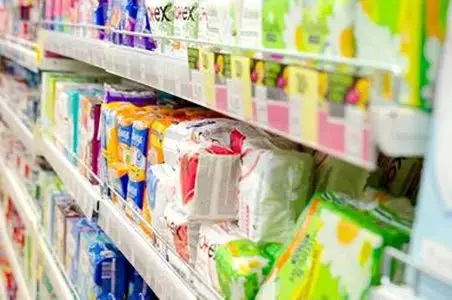The Hidden Cost of Menstruation
Menstruation is a natural, unavoidable biological function that half the population experiences for a significant portion of their lives. Yet, in Jamaica, the cost of managing this essential aspect of health remains a financial burden for many women. Despite the removal of General Consumption Tax (GCT) on menstrual products over a decade ago, import duties and other levies continue to keep prices high—raising concerns about accessibility, affordability, and economic justice.
For women in low-income households, the added expense of menstrual products creates an unnecessary strain, forcing them to make difficult choices between purchasing pads or meeting other essential needs. Period poverty—the inability to afford menstrual hygiene products—is a persistent issue that disproportionately affects young girls, often leading to school absenteeism and lost opportunities. Advocates and industry leaders are now calling for a complete removal of all import duties and taxes on these products, arguing that menstrual care should not be treated as a luxury but as a fundamental necessity.
The Fight for Fair Pricing
Jamaica took a progressive step in 2012 by eliminating GCT on sanitary pads and tampons, becoming one of the first countries in the Americas to do so. However, a 20% import duty still applies to these products, keeping prices artificially high. Despite this tax burden, local businesses like Woman’s Touch, a Jamaican feminine care brand, strive to provide affordable options.
Dr. Chris-Ann Simpson-Harley, the founder of Woman’s Touch, has been vocal about the economic barriers created by these taxes. “Menstrual products are not a luxury; they are an absolute necessity. It is unfair that women must continue to bear this additional financial burden,” she stated. “We don’t manufacture these items locally, so businesses in this space are at the mercy of international costs and local import duties. Removing these extra fees would allow us to price products more competitively and ensure affordability for all women.”
With sanitary napkins and tampons ranging from JMD $300 to $2,000 per pack, the monthly expense can add up significantly—leading to annual costs exceeding JMD $14,000 for some users. For women in low-income households, this expense is not just an inconvenience; it is a barrier to dignity.
A Political and Social Responsibility
The fight to eliminate import duties on menstrual products is not just an economic issue—it is a gender equity issue. Countries such as Kenya, Canada, and India have already taken decisive steps to remove all forms of taxation on menstrual products, recognizing that access to these necessities should not be dictated by financial status.
Opposition finance spokesperson Julian Robinson has acknowledged the issue, stating that removing the duty is a matter worth reviewing. “What’s critical is ensuring that the savings from the removal actually reach consumers rather than getting absorbed by retailers,” he pointed out.
Similarly, long-time advocate and parliamentarian Lisa Hanna has called for a policy shift, suggesting that instead of taxing menstrual products, the government could redirect revenue from non-essential goods such as Viagra. “We need to ensure that no woman or girl is forced to miss school or work because they cannot afford a basic health product,” she emphasized.
Shelly-Ann Weeks, founder of the Her Flow Foundation, agrees that high prices are a barrier to many women. Her organization, which has distributed over 10 million menstrual products to those in need, continuously sees firsthand the struggles faced by young girls and marginalized women. “It’s not just about affordability—it’s about dignity,” Weeks said. “We need a structured policy to ensure every girl has access to these products, whether through price reductions or government-led initiatives.”
Beyond Tax Removal: A Commitment to Change
While the push for tax-free menstrual products is gaining momentum, some advocates argue that this is only the first step. Beyond tax removal, there is a growing call for state-sponsored programs that provide free period products in schools and community centers.
Countries such as Scotland have already introduced free sanitary products in public institutions, ensuring that no one is forced to go without them due to financial constraints. Jamaica has an opportunity to take a similar approach, with organizations like Her Flow Foundation advocating for free sanitary products to be integrated into the PATH (Programme of Advancement Through Health and Education) benefits for students in need.
The Road Ahead
The taxation of menstrual products remains a glaring example of gender-based economic disparity. Advocates argue that Jamaica must take the next step in prioritizing women’s health by eliminating import duties on these essential items. With political will and policy change, the government can ensure that no woman or girl is forced to endure the indignity of period poverty.
It is not just about removing a tax—it is about recognizing menstruation as a fundamental part of life and treating it with the respect and support it deserves.

